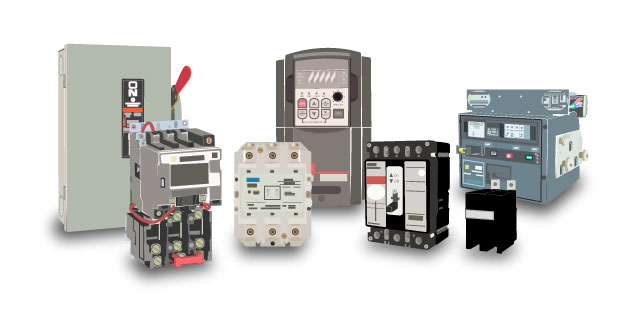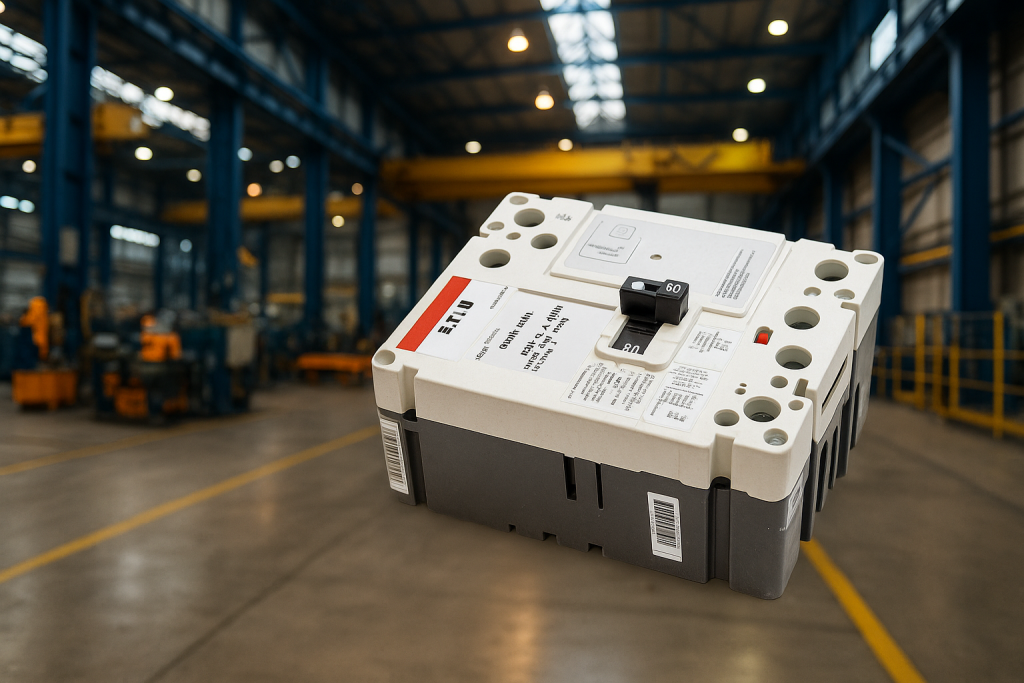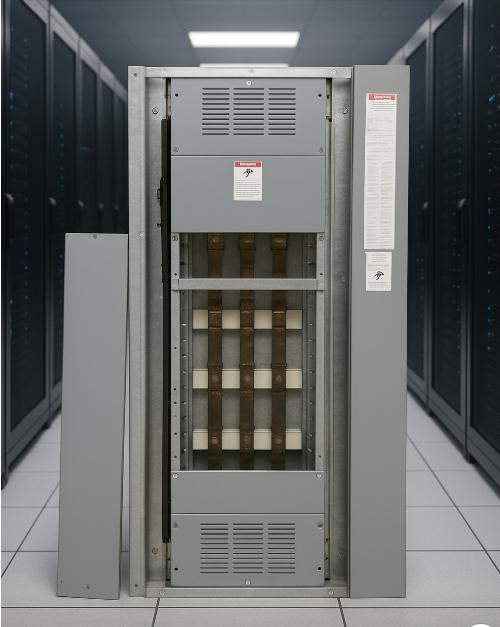Same breaker, different name? Eaton Cutler-Hammer, Westinghouse… what’s the difference?
Need Eaton/Cutler-Hammer Breakers?
Get Breakers QuoteIf you have ever tried to buy Eaton Cutler Hammer breakers online or through a distributor, you’ve probably seen listings for all three brands — Eaton, Cutler-Hammer, and Westinghouse — which are sometimes used interchangeably. Are these the same breaker? Are they compatible? Which one should you get for an electrical panel?
Whether you’re replacing an old breaker in a commercial panel or maintaining an industrial electrical system, understanding the relationship between these brands lets you make the best buying decision. This post includes a brief history of the brands, some common part numbers and circuit breaker identification.

How These Brands Came Together
To understand Eaton Cutler Hammer and Westinghouse breakers, let’s look at how they got here:
- 1893 – Cutler-Hammer is founded and becomes a well-known brand in motor controls and industrial circuit protection.
- 1940s–1990s – Westinghouse Electric becomes a leading brand in low-voltage electrical distribution.
- 1978 – Eaton Corporation acquires Cutler-Hammer, keeping the name for decades because of its strong brand.
- 1994 – Eaton acquires Westinghouse’s Distribution and Control Business for $1.1 billion, bringing in their extensive breaker catalog.
- 2003–Today – Eaton consolidates its branding under the Eaton name, and the company still supports legacy parts for backward compatibility and product cross-referencing.
✅ Takeaway: If you’re replacing a breaker from any of these three names, you’re most likely working with the same internal design — and Eaton enforces circuit breaker compatibility across circuit protection generations.
Eaton, Cutler-Hammer, Westinghouse Breaker Compatibility Tips
If you’re trying to match or replace an older Cutler Hammer or Westinghouse breaker, here’s what you should focus on:
- Match the frame type and model number, not just the brand. For example, if your panel uses an FD3060, that means it’s a 3-pole FD-frame 60A breaker — that’s the detail you need.
- Eaton’s Series C includes many legacy part numbers originally released under Cutler-Hammer and Westinghouse.
- Eaton still maintains UL listings for these replacements for safety and code compliance in legacy electrical panels. This means they’re tested and certified for safety and code compliance. You can confirm compatibility using Eaton’s breaker Cross Reference tool.
For more help with sourcing and compatibility, check out this list of circuit breaker tips from Relectric’s breaker experts.
Common Part Numbers You’ll See (And What They Mean)
Still not sure whether you’ve got an Eaton or a Westinghouse in your panel? Here are some popular part numbers you’ll probably run into:
| Part Number | Brands | Amperage and Frame Type |
| FD3060 | Eaton, Cutler-Hammer, Westinghouse | 60A, FD-frame MCCB |
| HFD3025 | Westinghouse, CH | 25A, HFD-frame |
| KD3400F | Eaton, CH | 400A, K-frame |
| BAB1020 | Cutler-Hammer | 20A, Miniature Plug-in |
| EHB3015 | Westinghouse | 15A, Bolt-on MCB |
✅ Tip: The Eaton Cutler Hammer part number tells you more than the brand. The Frame and amperage are given in the part number. See the Eaton Circuit Breaker Catalog.
Smart Sourcing Tips
When you’re ready to buy a breaker — especially one for an older panel — this will help you make sure you’re buying the right breaker part:
- Search by part number, not just the brand. This is the fastest way to find a perfect match.
- If you’re sourcing a Westinghouse breaker, don’t worry if the only thing available is labeled Eaton — it’s likely the same frame and function.
- Confirm voltage rating, interrupt capacity, and mounting style all line up before installation. Before you install a replacement breaker, make sure it matches the original breaker’s:
Voltage rating – The maximum system voltage it can safely handle (e.g., 240V or 480V).
Interrupt capacity – The maximum fault current the breaker can safely interrupt without damage (e.g., 10kA, 25kA).
Mounting style – How the breaker physically installs into the panel (e.g., bolt-on, plug-in, or panelboard-specific like I-Line).
Suppliers like Relectric specialize in both new and legacy breakers, including hard-to-find models from Cutler-Hammer and Westinghouse.


What You Should Know about Eaton Circuit Breaker Selection
Buying the right Eaton Cutler Hammer breaker doesn’t have to be overwhelming. Once you understand the history — and how Eaton continues to support legacy circuit breakers from Cutler-Hammer and Westinghouse — it becomes much easier to make confident, informed decisions.
Need help finding the right model? Check out the full selection of Eaton molded case circuit breakers, or use Relectric’s breaker identification tools to confirm what you’ve got.
